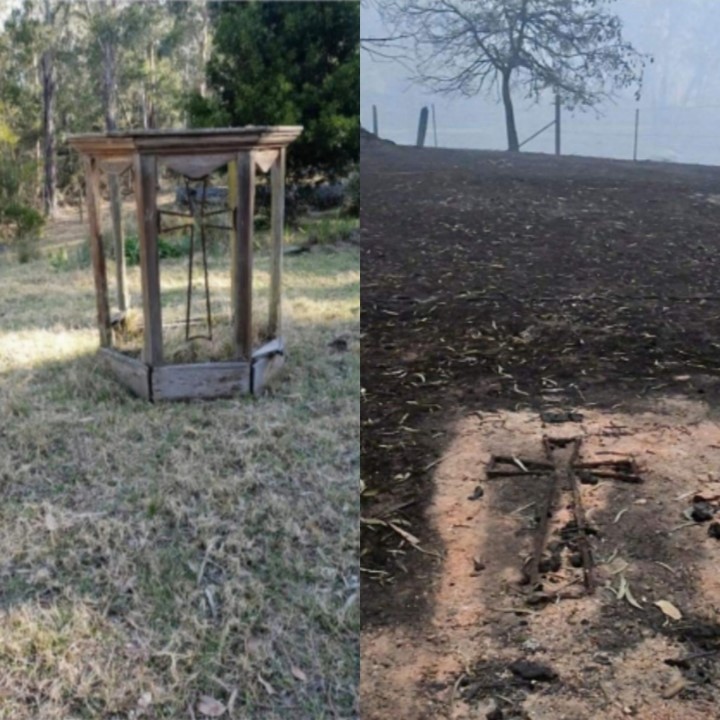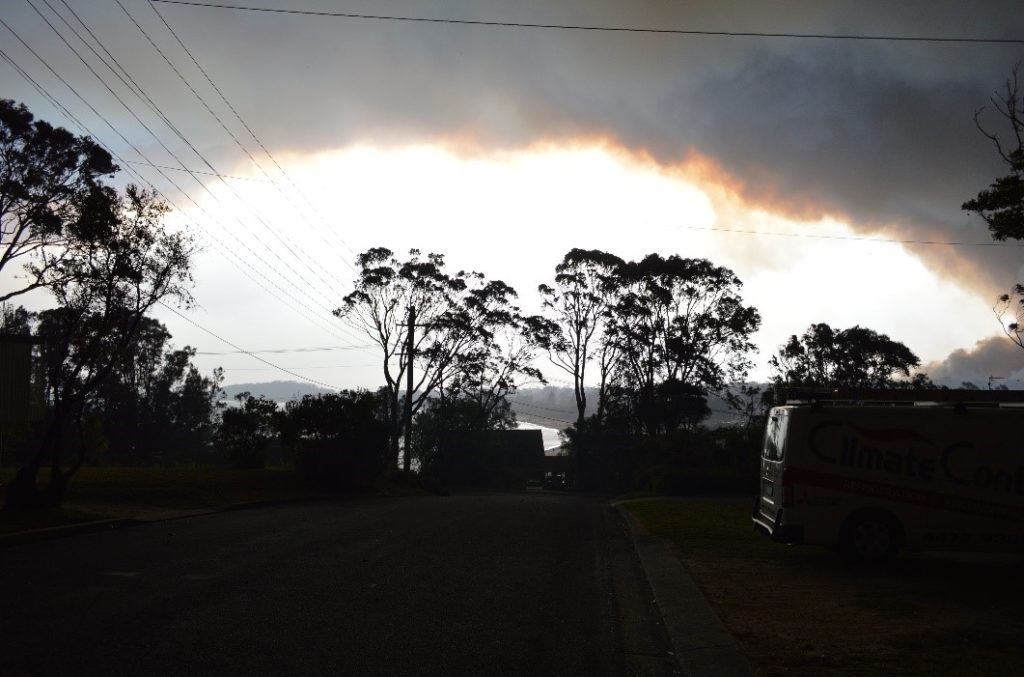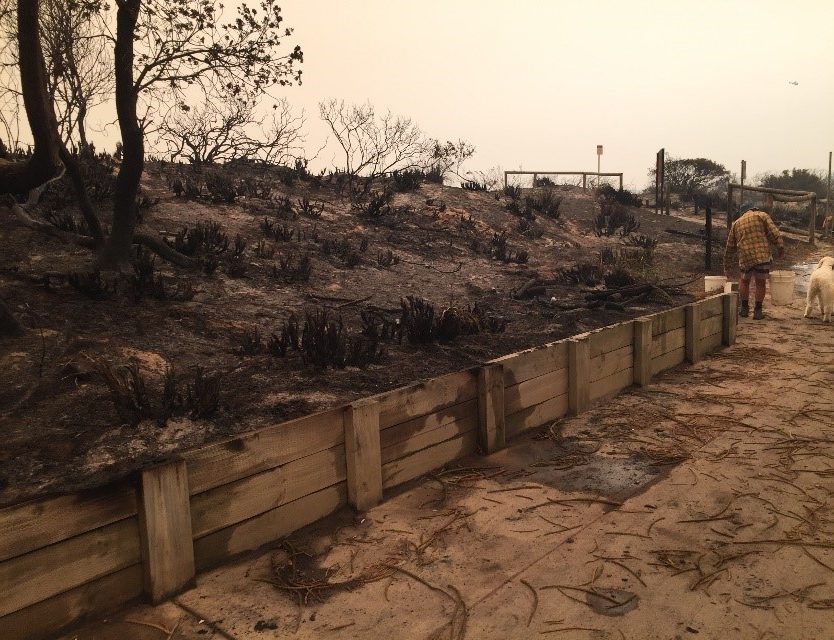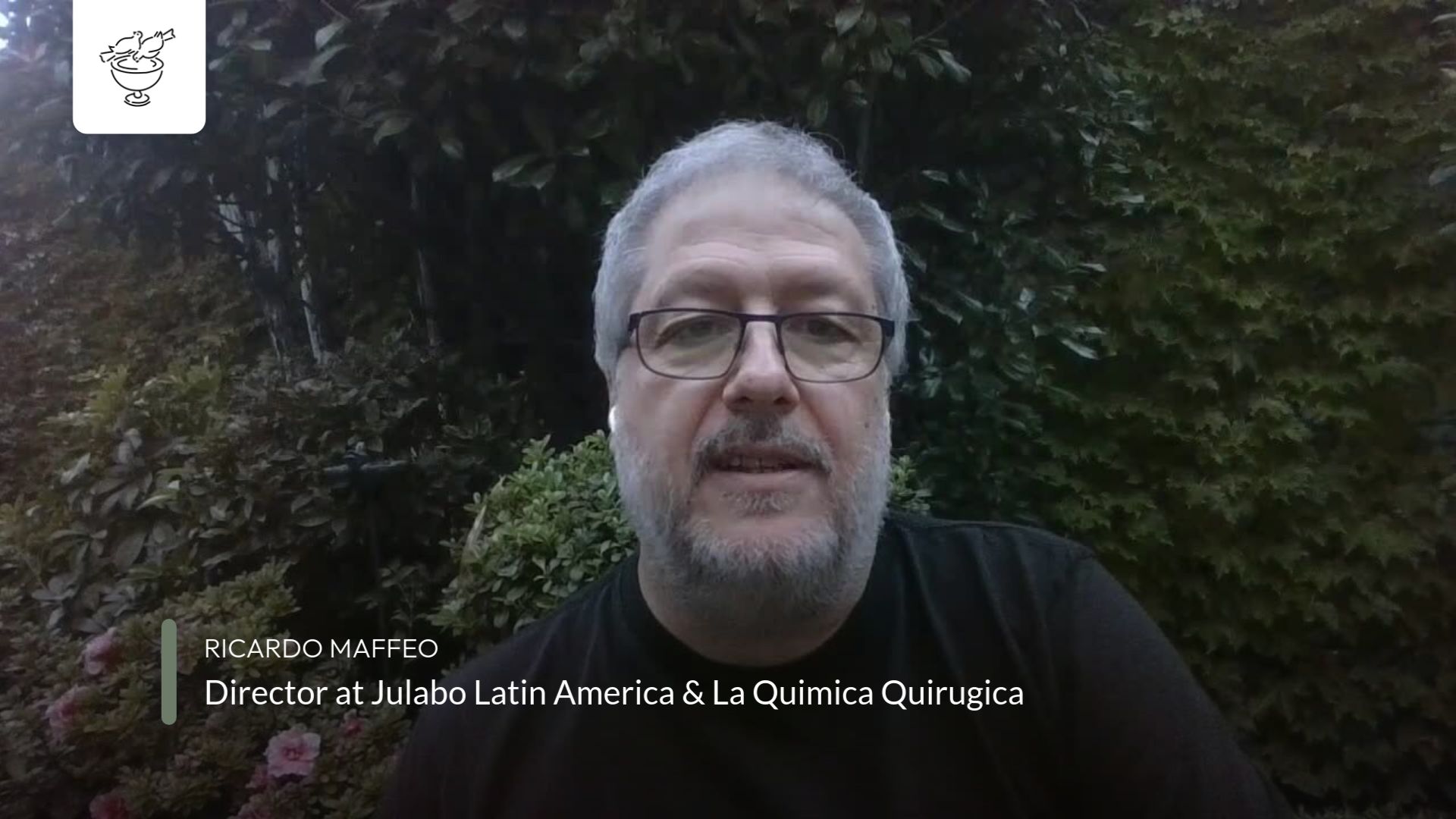The thing about an actual crisis, an immediate one, is that when it comes barging in through the front door, theories go flying out the back door.
The seemingly slow unwinding of the ‘climate crisis’ sped up on New Year’s Eve 2019 here on the south coast of NSW. That we had had some time to prepare was a mercy for us. Others had no such grace. The creeping, leaping fires that began in September had until now appeared only on the screen and in the smoke that crept in and stayed. It was also there in the charred remains of trees washed up on the tide line. Then suddenly it was here. The thing about an immediate crisis is that singleness of mind comes not as a choice but as necessity. There is an unwanted imperative to act without distraction, with clear, purposeful attention; no egoic pattern of thought can survive. The fire is not an audience for self- reference. The ‘firey’ (volunteer fire fighter) in the face of flames has one purpose, one thought, one action. The resident leaving home to escape the flames is as singular in intent. The 84-year-old woman I encountered at the aged care facility told me she had literally gone out the front door as the flames came in the back door. She had the presence of mind to pick up her handbag on the way but no time for anything else. Now, she sat with us as we shared communion, in tears, still in shock. I’ve not yet heard the details of ‘Joan’s’ escape who, at 104 years old, and still attending our choir, lost her home and everything in it. She is one of so many we know.

The phone call that tells one to leave now as one’s life is at risk has a galvanising power that leaves the mind strangely free to attend to only the most essential thoughts. The immediacy of a crisis that is suddenly upon one distils thought and action. And of course, adrenalin provides the necessary spurt of energy to act. What happens over time as ‘the crisis’ recedes and then returns is a diminishment of energy. Fatigue has been a common state for most in our community over the last months. And in those hours and days as we prepare for the next fire front, or during it, there is much waiting and not knowing. Or compulsive needing to know; a kind of welding to ‘Fires Near Me’ or the radio, if they are working. And of course as time goes by and we have accumulated more stories of people narrowly escaping, of homes lost; as we move through charcoaled forests whose silence speaks of death, so our minds fill with these images that fuel anxiety, grief and deep anger.
How are we to live in this broken world? I hesitate to suggest that this fire crisis could all have a purifying, simplifying effect if we are awake to it. I hesitate because I in no way want nature to be paying this price of our possible awakening. She does not deserve this. On the other hand, if we are not to wake up because of this calamitous crisis then the cost will be very much higher.
In our meditation practice we choose the one thing necessary. We bring our attention to the mantra whenever it wanders. In the stillness of sitting our body leads our mind to settle. Thought and action meet through purposeful attending. We don’t, can’t, coerce stillness, simplicity, silence to come, however we can allow for these. When a crisis comes the mind is honed and anchored. The image of Jesus in the boat might be instructive. It’s as though we have a container, open to all the elements, yet a space in which to settle in a storm.

Between days of more imminent threat there are days that are relatively smoke free and safe. Time to relax a little; to ease into the ocean who no matter how much we sin against her does not refuse us entry. As I float, I notice a lady- bug being carried by the current. She is upside down. I scoop her up and carry her onto dry land. Every life, every insect is now so much more precious after losing so much. To float in the ocean is luxurious and a salve. The mind cannot stay on high alert for too long, needing space to wander a little, time for diffuse attention.
Reflecting on living through these days of fire, I’m conscious that the practice of meditation integrated into daily life has proven to be significant at such a time. And, just as the fire threats grow and recede so our thoughts become insistent and demanding or spacious and quiet in turn as we practice meditation. Like the southerly that came the day fire was closest to our home, and cleared the sky within minutes, so we may suddenly find a clear space open within. We can neither control the wind nor the Spirit. Meditation is not a theory or an idea. It’s a practice that, when lived, enables us in times of ease as well as times of crisis.
The practice of meditation is a grounding and stabilising influence. At times of acute crisis it can enable some equilibrium. It must never become a soporific. The bushfire crisis in Australia, or as one journalist has called it the pyro-hydro-climate crisis, is an international catastrophe. Many are extremely angry and despair of any possibility of the kind of immediate policy our government needs to enact to reduce carbon emissions. Anger can energise action. Jesus response to the injustice and exploitation of the Temple moneychangers led to his turning of their tables. As a community we need to do the same. Anger, channelled as deep and persistent conviction and action, is an appropriate response to present conditions. A contemplative response is measured and spiritually intelligent but no less insistent than any form of activist protest. The times in which we are living demand radical action. Come what may though, if we lose our capacity for love, then we forfeit our Christian vocation and identity. We can only live in this broken world as truly human beings when we act with truthful and courageous love for the common good. Contemplative consciousness is clear-sighted, compassionate and wise. In a country such as ours, where the politics of coal and climate has been so polarised and toxic, the discipline of contemplative practice seems vitally important. The bitterness of activists is easily understood. Yet we must ‘maintain the rage’ in a way that subverts the old adversarial system. We must dive deeper and return to our ‘adversaries’ not hatred but intelligent, insistent and compassionate action. The daily practice of meditation is like a filter through which we can allow our own toxic thoughts and feelings to become transformed into energy for that action.
——————————–
I saw a black swan last night. Just one. I hadn’t seen any round here for many weeks. They have for long been for me a reminder of the rhythm of days. I love their flight and their presence signifies a graciousness that is so often missing in a world dominated by human avarice. And as I remember that lone swan, I recall the black swan theory.
“The phrase “black swan” derives from a Latin expression; its oldest known occurrence is from the 2nd-century Roman poet Juvenal’s characterization of something being “rara avis in terris nigroque simillima cygno” (“a rare bird in the lands and very much like a black swan”). When the phrase was coined, the black swan was presumed not to exist. The importance of the metaphor lies in its analogy to the fragility of any system of thought. A set of conclusions is potentially undone once any of its fundamental postulates is disproved. In this case, the observation of a single black swan would be the undoing of the logic of any system of thought, as well as any reasoning that followed from that underlying logic.”
That black swans were once thought not to exist did not negate their reality. Our thinking was simply our thinking. Human assumptions about the natural world do not make those assumptions true. Our hubris, our worldview, based as it is on a story of superiority and separation, lies at the base of our destruction of life on this planet. And our thinking, our thoughts, do not necessarily constitute reality. In meditation we learn that we are not our thoughts. We learn, or realize, that truth lies beneath our superficial thinking, beyond our ideas, concepts, theories.
Just now, walking on the beach, a large hawk approached. It flew low towards me and came to within about five meters; so close I could see the detail of her wings. I thought that perhaps she had come so close because lack of food had made her bold. Or perhaps, so my projection went, she was in disdain of any human life and was not bothering to keep a distance. We have taken up too much space and wildlife are pushed to the edge. Now we have destroyed her forest in the carbon fuelled tempest. Only a few moments later I saw an eagle approaching and again this magnificent bird came close. I saw that she had a creature in her talons; its small body gripped and suspended as she flew back to her eyrie. I was struck with a sense of awe at the nature of wild life. I felt for the little creature plucked up to be eaten. I was sad for it. Yet this is the nature of wild Life. Only human beings can afford sentimentality. I watched with deep respect as the eagle and her prey flew away.
Human life is beyond domesticated. For the most part we have forgotten our own wildness. We have become half-witted. That’s to say, we seem to be in the process of severing the connection with the ‘wild’ side of our mind, our right brain, the deep mind where silence is encountered. To re-member who we are is to restore our primal connection with wilderness, without and within. If it is true to say that our primordial habitat is Silence, then our practice of meditation is a pathway to restoring our conscious connection with that nature that we are part of and cannot live without.
The fires are almost all out now. A sign near the church in Moruya that for many weeks had read Road Closed due to Fires was overnight changed to Road Closed due to Floods. The rain when it came fell in great volumes. Rivers and ocean turned brown and littered with branches of fire scorched trees and ash. The beaches continue to be tide marked with the burnt forests washing up on shore. We would be foolish to think that the climate crisis has also receded. The image of the cross burnt into the ground after the fire swept though is a haunting reminder that the earth is being crucified. We must keep our attention on what needs to be done. The old Anzac refrain keeps coming to mind. Lest we forget.





